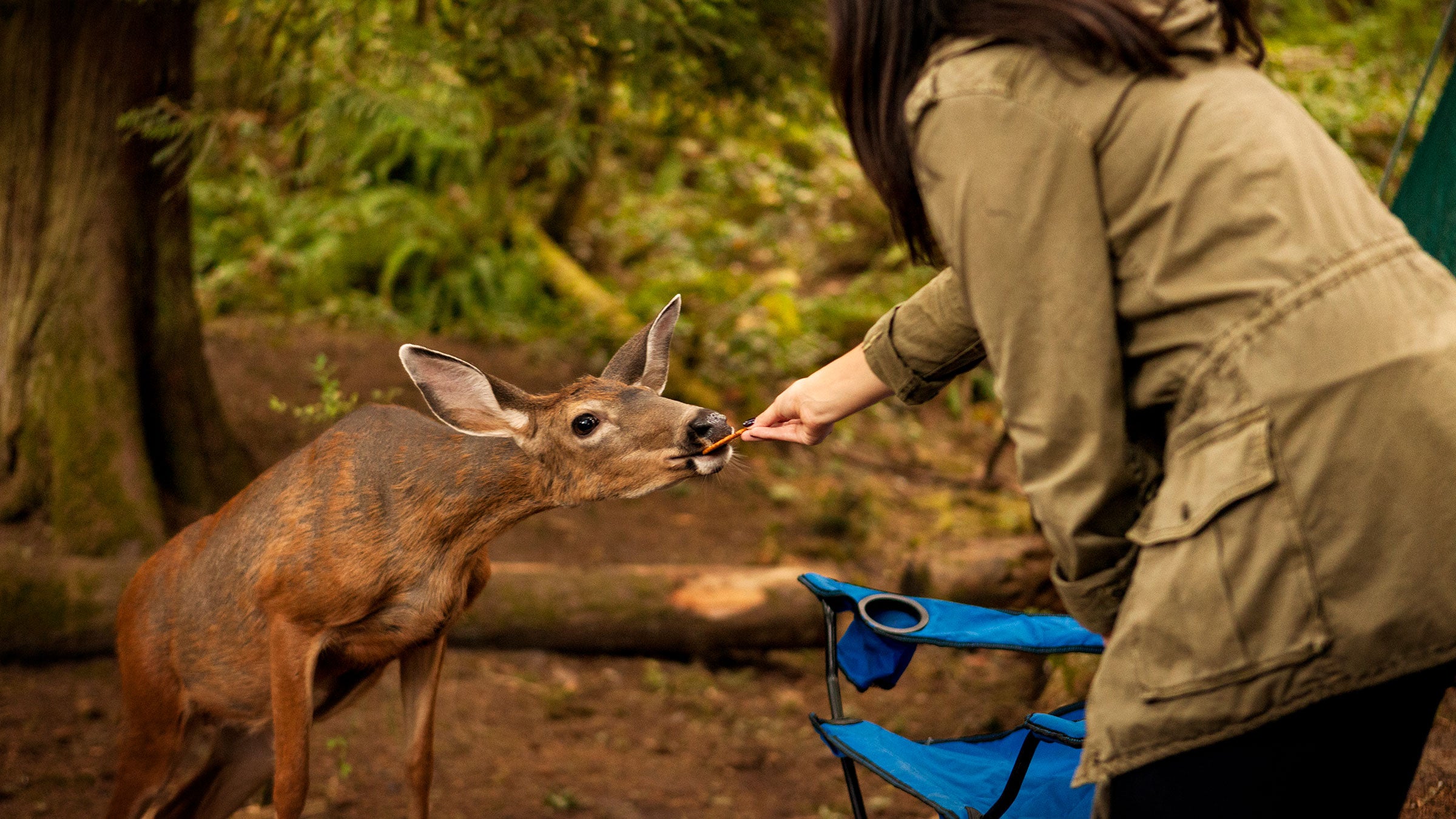Why You Shouldn't Feed Wild Animals

Woman feeding a deer (Photo: Getty Images)
In busy national parks like Rocky Mountain, a never-ending supply of interesting food smells, picnic crumbs, and forgotten leftovers draws all sorts of creatures to the campgrounds in search of easy calories. From pesky field mice and chipmunks to more-problematic skunks, deer and bears, they flock in at night–and often during mealtime, especially in places where habituation has made them bolder.
Habituation happens where humans offer rewards–typically by giving handouts to little beggars–and where the creatures suffer no penalty for coming close to feed. Over time, this breaks down the natural fear that animals have for humans, and can result in nuisance behavior, like the time a camp mouse chewed through my tent in the Grand Canyon in search of an energy bar wrapper my daughter forgot to pack away.
Feeding animals–or being careless with your food–can lead to more distressing encounters, though. On another trip, this time in Olympic National Park, I spent 20 minutes standing on a picnic table while a skunk–clearly conditioned to expect goodies from campers–sniffed around underneath. And I’ve lain awake at night in my tent listening to bears rustle through my kitchen area in search of treats.
For wild animals, the risk of food conditioning is twofold. First, if they substitute campground raids for natural foraging behavior, they get hooked on foods that are seasonally ephemeral and don’t provide the nutrition they need (Fritos, anyone?). Second, the raids bring them in closer contact with humans, and sooner or later a snarl or defensive snap will put a bulls-eye on them. A summer doesn’t go by without a “nuisance” bear (or three) getting relocated or exterminated in the national parks.
For humans, the risk ranges from annoying visits to terrifying intrusions. Bear encounters are extremely rare these days, thanks to better park policies around food storage and wildlife deterrence, but you–as a camper–are the first and most effective line of defense. How you handle and store food determines whether you prevent–or invite–an encounter.
Follow these simple tips to reduce the odds:
Frontcountry Food Storage
›› Pack all food and toiletry items in the campgrounds’ metal bear boxes whenever you’re not cooking or eating. Never leave munchies or toothpaste in your tent or sitting on a picnic table while you’re gone–even when you head to the restrooms for a shower.
›› Keep food that you’re storing in your car in the trunk—not in plain sight on the backseat. Bears have been known to smash windows to reach items they recognize as yummy snacks.
›› Wash dishes and utensils immediately after cooking, and store them in the bear boxes. Toss used paper plates and other trash in secure bins, not in a trash bag you hang from a tree in camp.
Backcountry Food Storage
›› Store all food and toiletry items in the hard-sided food canisters that RMNP requires backpackers to carry. Rent them in town at the Mountain Shop, Warming House, or Hiking Hut outdoor stores.
›› Situate your camp kitchen at least 200 feet away from your tent to keep food smells away from where you’re sleeping.
›› If a bear approaches while you’re cooking, don’t attempt to defend your food. Knock over the pots to give the bruin as little reward as possible, but don’t put your life at risk to prevent habituation.